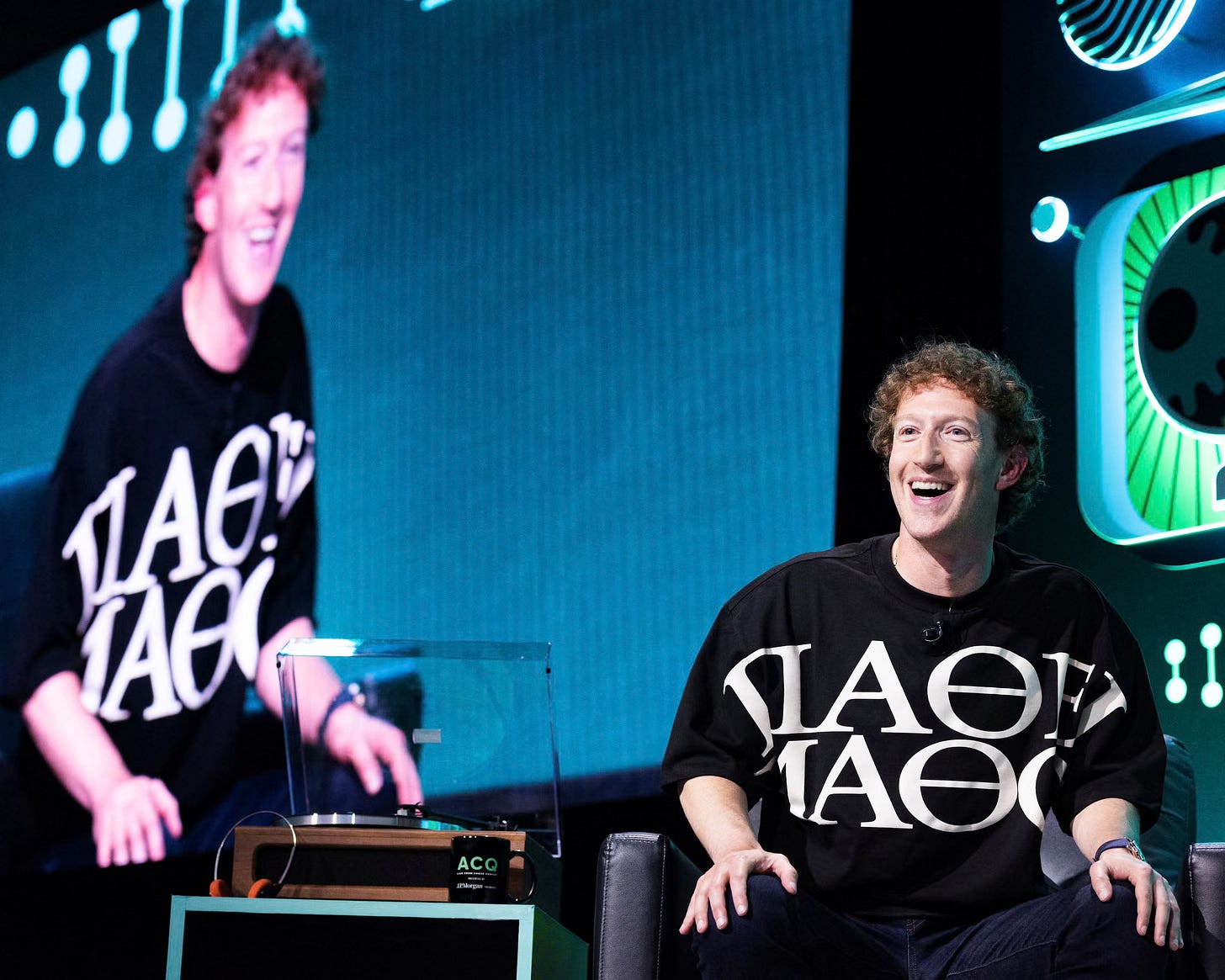The A.I. Shell Game Is Well Underway
And we the people are the mark . . .
Years ago, when I was still a fresh-faced twenty-something in New York City, a man sitting near me on the subway set up a simple shell game on his lap.
All of us in the car watched furtively as he moved his set of three plastic cups back and forth, the ball underneath them occasionally becoming visible to our side-eyed peeks.
Then he stopped, and asked us which one it was under. “Two,” I blurted out. “That’s right,” he said, before asking me to fork over $20 to prove that I was right.
You can guess how the rest of the story goes.
I keep getting reminded of that memory, as the breathless chorus grows louder each week at the magic act of A.I.
Just last week, in advance of its latest quarterly meeting, Meta’s Mark Zuckerberg reported that “developing superintelligence is now in sight.” Microsoft’s former head of A.I., Mustafa Suleyman, predicts that A.I. will usher in “the greatest reshuffling of power in history.” And Dario Amodei, the CEO of Anthropic, expects an entity as early as next year to be smarter than a Nobel Prize winner across most of that prize’s most relevant fields -- from physics to literature.
To which I say: Um, yeah. No.
And I am clearly not alone.
Just this morning, in fact, Princeton professor David Bell -- a scholar of the Enlightenment, of all things -- urged us to hit the brakes on our prognosticating. Not only is A.I. unlikely to usher in a new era of intellectual awakening, he wrote, but “a close comparison illuminates how it can undermine the very principles of the Enlightenment itself.”
Whereas the great books or philosophers require us to wrestle with life’s largest questions, Bell explains, with artificial intelligence, ”we formulate the questions, we drive the inquiry according to our own interests and we search, all too often, for answers that simply reinforce what we already think we know.”
Worse still, the answers we receive for our queries are filtered through a syrupy form of flattery -- as opposed to a well-timed challenge of our convictions, or push to justify our logic.
And why should it, Bell points out? “It is, after all, a commercial internet product. And such products generate profit by giving users more of what they have already shown an appetite for, whether it is funny cat videos, instructions on how to fix small appliances or lectures on Enlightenment philosophy. If I wanted ChatGPT to challenge my convictions, I could of course ask it to do so — but I would have to ask. It follows my lead, not the reverse.”
As a result of this, the linguist Emily M. Bender and the sociologist Alex Hanna have suggested that not only is A.I. a recursive mirror, it’s a digitized Shell Game itself.
The title of their new book -- The A.I. Con -- says as much, and in it, they characterize today’s large-language models as overhyped “stochastic parrots”— parrots because they repeat whatever they hear, and stochastic because they’re random AF.
As James Gleick writes in his review of the book, “AIs are prediction machines, presented as benevolent helpmates. They are creating a new multi-billion-dollar industry, (but) they are also fouling our information spaces with false facts, deepfake videos, ersatz art, invented sources, and bot imposters—the fake increasingly difficult to distinguish from the real.
“It is uncanny that software can sound so human,” Gleick continues, “when it’s essentially just predicting what the next word or phrase ought to be, with a bit of randomness thrown in—but that’s all it is.“
Consequently, while AIs can help you plan a three-day itinerary in Germany (or write an anodyne essay for 11th grade English), they are not intelligent at all -- at least not in the way we have always meant that term up to now.
So we should be extremely skeptical when the tech companies keep urging us to reimagine our schools and universities in AI’s wake. “When we hear language,” Gleick continued, “we infer a mind behind it. The chatbots are powerfully persuasive. But impersonation (not actual wisdom) is their superpower.“
And so, as David Bell argues, “whereas A.I. can bring us useful information, instruction, and even comfort, it cannot bring us Enlightenment. In fact, it may help drive us further away from Enlightenment than ever.”



